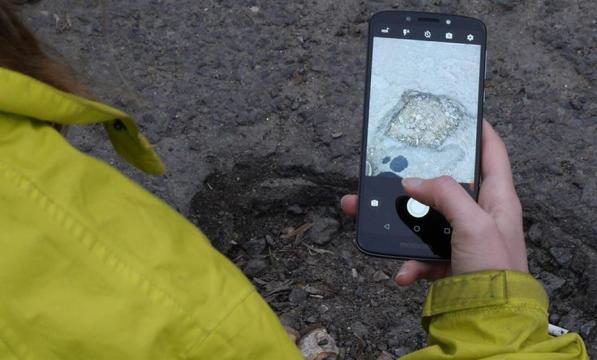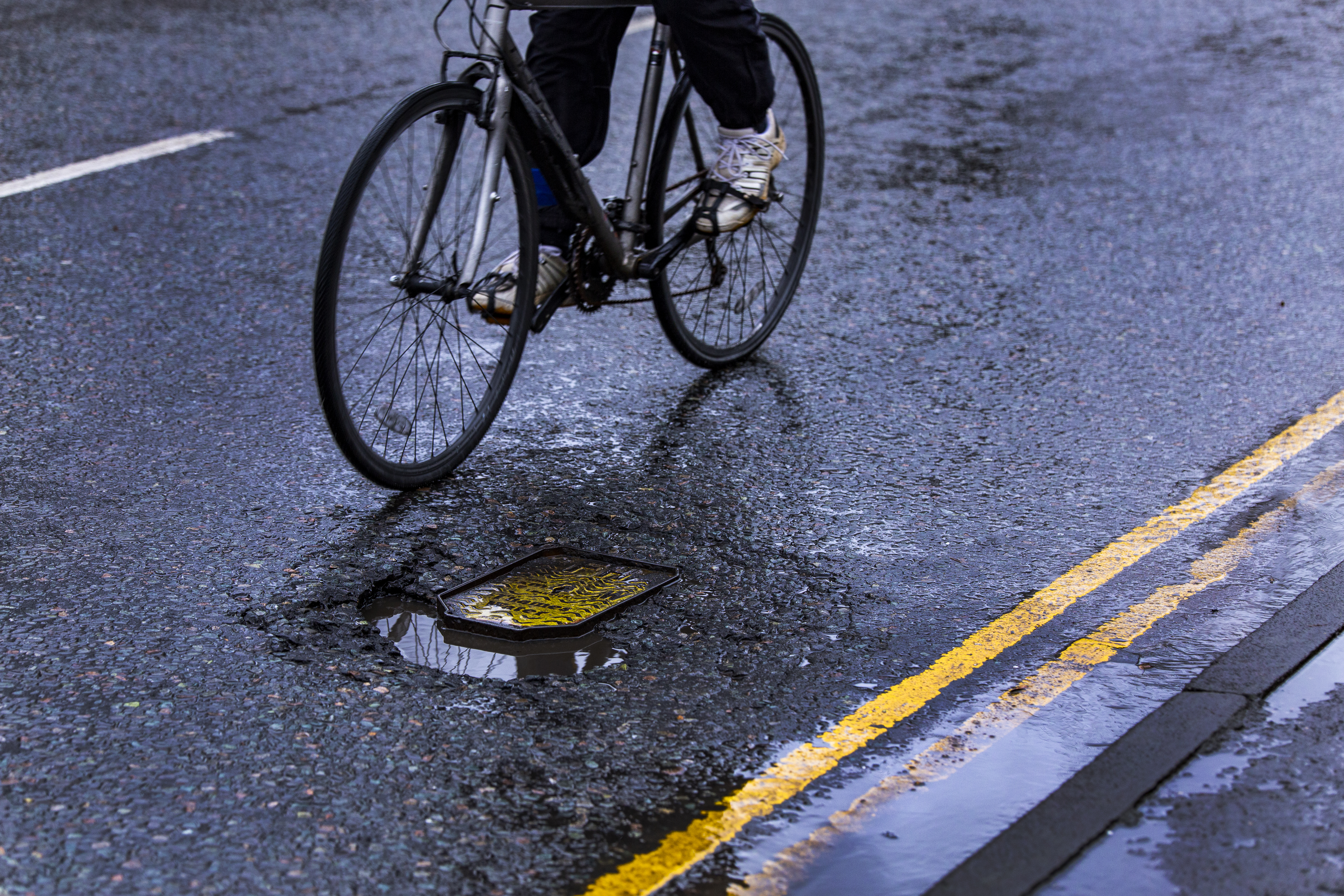Potholes – what is the Government going to do about them?

Head out onto the road, and no matter whether you’re driving, cycling or walking, you’re bound to find a pothole or other road defect within minutes.
So bad is the current state of British roads, that the Asphalt Industry Alliance estimates it would take a one-off £9bn investment to fix the backlog – without including the amount needed for ongoing maintenance.
Last November, the Commons Transport Committee held an extensive inquiry into what needed to be done to fix the state of Britain’s roads.
As the organisation which runs pothole reporting tool Fill That Hole, Cycling UK gave evidence to the inquiry pointing out how poor maintenance on the local road network costs the economy annually £2bn.
The charity called for the Government to adopt a 'fix it first' policy, ie repair the local roads before building new ones. Cycling UK also highlighted the important role technology could play in reporting road defects.
In July, the committee published its findings, part of which included the recommendations that “the Department [for Transport] should propose a front-loaded, long-term funding settlement to the Treasury…so that local authorities can address the historic road maintenance backlog” and also “that DfT run an innovation competition to develop a platform that the public can use to make online reports about road condition direct to the relevant council."
Yesterday (28 October), the Transport Committee published the Government’s response to these and other recommendations, and the news if not great is far from bad.
In a turn up for the books, instead of reeling off a line about the current level of (inadequate) annual Government funding for local road maintenance, there is an acknowledgement the backlog needs addressing: “…[T]he priorities for funding for local highways maintenance are well understood, and this includes the benefits of a longer-term funding settlement for local highways maintenance.”
Consequently, “the Department for Transport is currently working on developing a good evidence base to ensure it submits a strong business case to HM Treasury as part of a future Spending Review.”
While this is undoubtedly a positive move forward, Roger Geffen, Cycling UK policy director said, “it’s disappointing to see Government still failing to commit to addressing the estimated £9bn pothole backlog to fix Britain’s roads.
“We’ve a well-funded strategy for building new motorways, but what good is this if all the other roads are crumbling? Pedestrians and cyclists are disproportionately affected by poor maintenance, and fixing broken bones costs a lot more than fixing broken axles.”
We’ve a well-funded strategy for building new motorways, but what good is this if all the other roads are crumbling?
Roger Geffen, Cycling UK policy director
The solution as Mr Geffen puts it is simple: “Cycling UK wants the Government to adopt a ‘fix it first’ policy, to help people make local journeys safely by clean and healthy means. We need far more of our national transport spending spent on repairing our local roads and streets, instead of building new highways.”
While we’re still a long way from seeing an actual sum announced to address the backlog, the recognition is on the record. The Chancellor Sajid Javid has declared “the end of austerity”, so it’s to be hoped his department, HM Treasury, will start investing properly in the local roads.
The other interesting development was the Government’s acceptance for the Committee’s recommendations for a public reporting tool. The DfT is now looking to work with the UK Roads Liaison Group, UK Roads Board, and the Local Councils Road Innovation Group to investigate further how such a platform as the Committee has recommended can be developed.
Mr Geffen welcomed this development, but pointed out that any such tool should be available for all of the UK (the DfT’s remit is largely England): “It’s only sensible the Government accepted the committee’s recommendation of a national road defect reporting tool.
“It’s important however such a tool isn’t England only as that would limit its effectiveness and only make it more confusing to use for the public.”
Fortunately, there already is such a tool available that allows you to report a pothole wherever you are in the UK, shows road defects on a map, is mobile friendly and also allows councils to report when the hole is repaired: Fill That Hole.
There’s therefore no need for the Government to reinvent the wheel.
“Cycling UK would urge the Government to look to the success of the national road defect reporting tool the Fill That Hole app,” suggested Mr Geffen. “With very little initial investment, the UK already has a tool which allows anyone to accurately report road defects anywhere.
"Where Government support is necessary", Mr Geffen says, "is in directing local authorities to use one system for reporting potholes." Currently there are several different websites to report potholes, as well as individual tools developed for specific councils.
The only thing Fill That Hole lacks is Government encouragement to local authorities to integrate it with their system.
Roger Geffen
Needless to say, this can be confusing for the individual wanting to report the pothole. It’s not always easy to know which authority looks after which stretch of road, which is why Cycling UK would like to see the Government encourage councils to use one system.
“The only thing Fill That Hole lacks is Government encouragement to local authorities to integrate it with their systems,” he said. “Instead many local authorities have wasted their money on building localised pothole reporting tools, which it now looks as though they will have superseded by another new pothole reporting tool.”
While nothing has been settled in terms of fixing Britain’s pothole problem right now, all this news is encouraging and appears to be heading in the right direction.
For now however, if you spot a pothole or other road defect, head to Fill That Hole.





